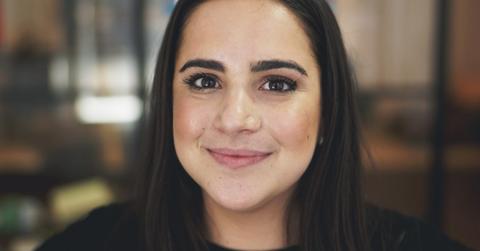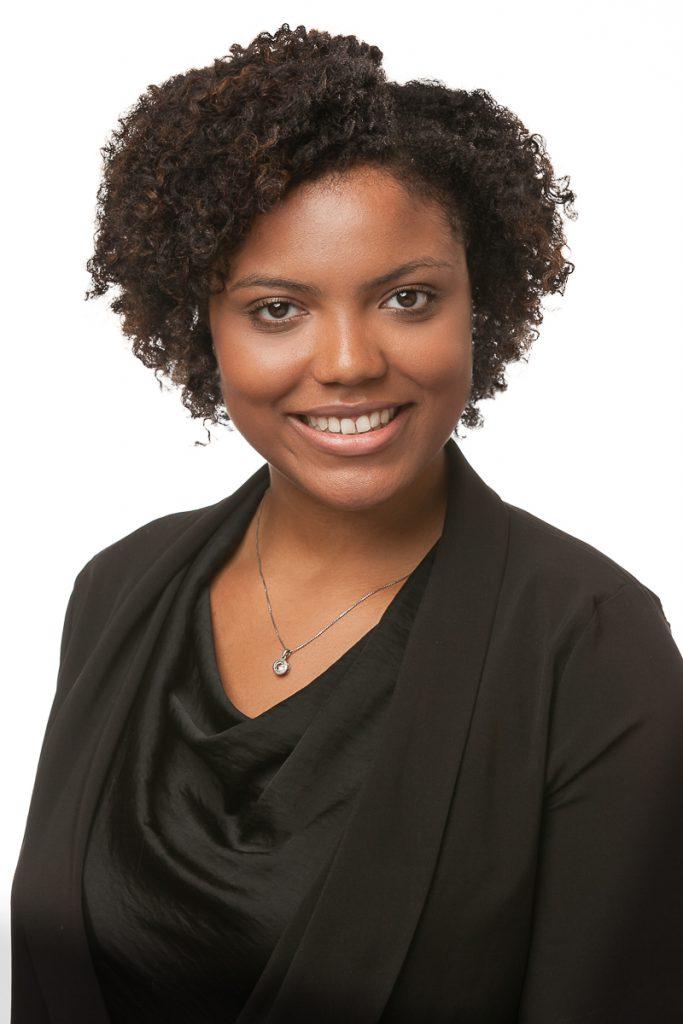Recognizing the power of real relationships, Jamie Coakley has leveraged her active listening, communication, and people skills to climb the ranks in the male-dominated industry of sales. As the CEO of TwentyPine, a specialized talent firm advising Salesforce professionals and companies on their next step, Jamie wakes up each day doing what she loves: connecting people to opportunities and organizations to their ideal candidates.
An art major in college, she anticipated becoming a curator down the line but quickly realized she wanted a more fast-paced and challenging environment after working for a museum. Following this realizatiton, she got her start in tech and sales at pre-IPO Yelp shortly after graduating, where she completely fell in love with the industry.
Since her first pivot, Jamie has worked at Betts Recruiting, an early stage recruiting firm, and scaled a team from 14 to 150 worldwide and $20 million in revenue.
Redefining what most people think about sales, Jamie is innovating in the industries of tech and sales by tapping into her passion for professional matchmaking.
Additionally, acknowledging the need to prioritize diversity and inclusion in her sector, Jamie is leading the charge at her company to ensure that the company’s operations not only address inequality internally but also takes the necessary steps to improve equality at other companies through recruitment.
Jamie chatted with Her Agenda about leading in a male-dominated industry, maximizing the use of Salesforce, disruption, and her own tools for success.
Her Agenda: Where does your passion for sales and recruitment stem from?
Jamie Coakley: I fell into sales because I wanted a cool job at a startup so I started out at Yelp. I worked in restaurants my whole life so being able to call a business owner and hear their story about why they started this really cool restaurant, or how it was passed down through generations; I really connected with. I fell in love with not just helping them expand their business by selling local advertising, but also hearing those stories. I quickly learned that a transactional sale wasn’t really for me. I got to the point in my career at Yelp where I felt I was doing the pushy sales and asking tough, direct closing questions. I didn’t feel like, ethically, it was in line with the kind of relationships I wanted to have.
I started looking for jobs and ended up meeting my CEO, Carolyn Betts of Betts Recruiting at the Superbowl in New Orleans when Beyonce performed the night the Ravens played the 49ers, and it was this serendipitous moment. I already knew about her business out in San Francisco, her reps pinged me all the time and I thought I’d love to work for a woman. She responded, ‘I’m hiring, send me a resume, we’re always looking for recruiters.’ I told her, ‘I actually don’t think I want to be in sales anymore. I don’t think it’s aligned with want I want to do.’ She told me, ‘You’re in a totally different sales environment, recruiting is sales and you have the opportunity to not only sell your services to a client but also sell a candidate a new opportunity.’ For me, recruiting became this warm and fuzzy side of sales. I get to help companies grow and find amazing sales talent, and now with TwentyPine, Salesforce.com talent, and realize the full potential of the investments that they’ve made.
[It’s such a] rewarding experience. The thrill of the deal in sales never gets old for me. It’s that professional matchmaking aspect; you get to not only make someone happy, but make the client happy as well.
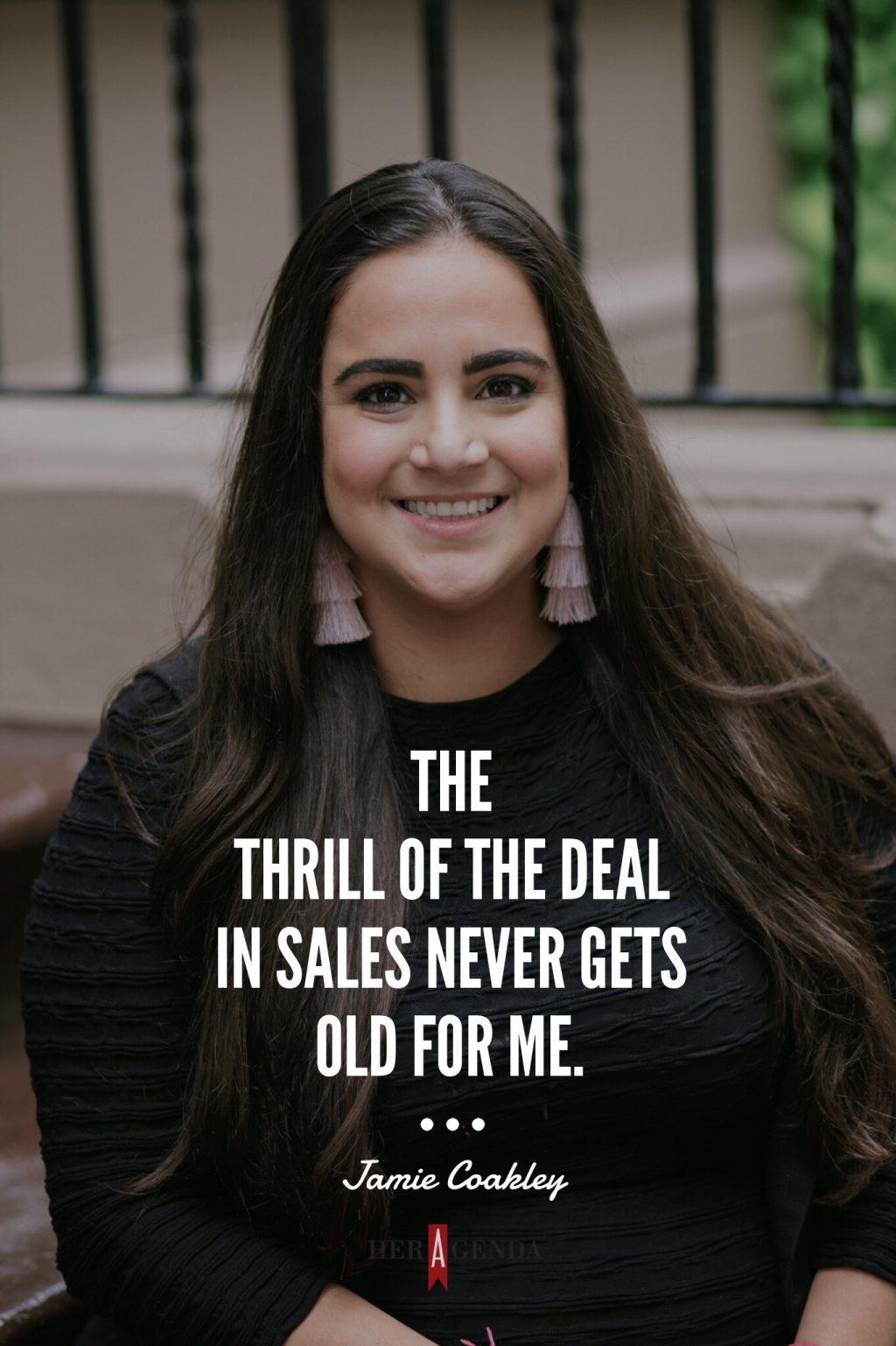
Her Agenda: What would you say is a common misconception of sales?
Jamie Coakley: I think people, especially young people, think of sales as a car salesman. Between 16 and 21 that was what I perceived as the only type of sales. Both my parents are in sales, they’re real estate agents. My dad was the VP of Sales my whole life, and I always pictured him on the road in his nice suits greeting clients. It’s not that at all. I think the true heart of a good sales rep, company or organization is putting customers first, understanding their needs, and their pain points.
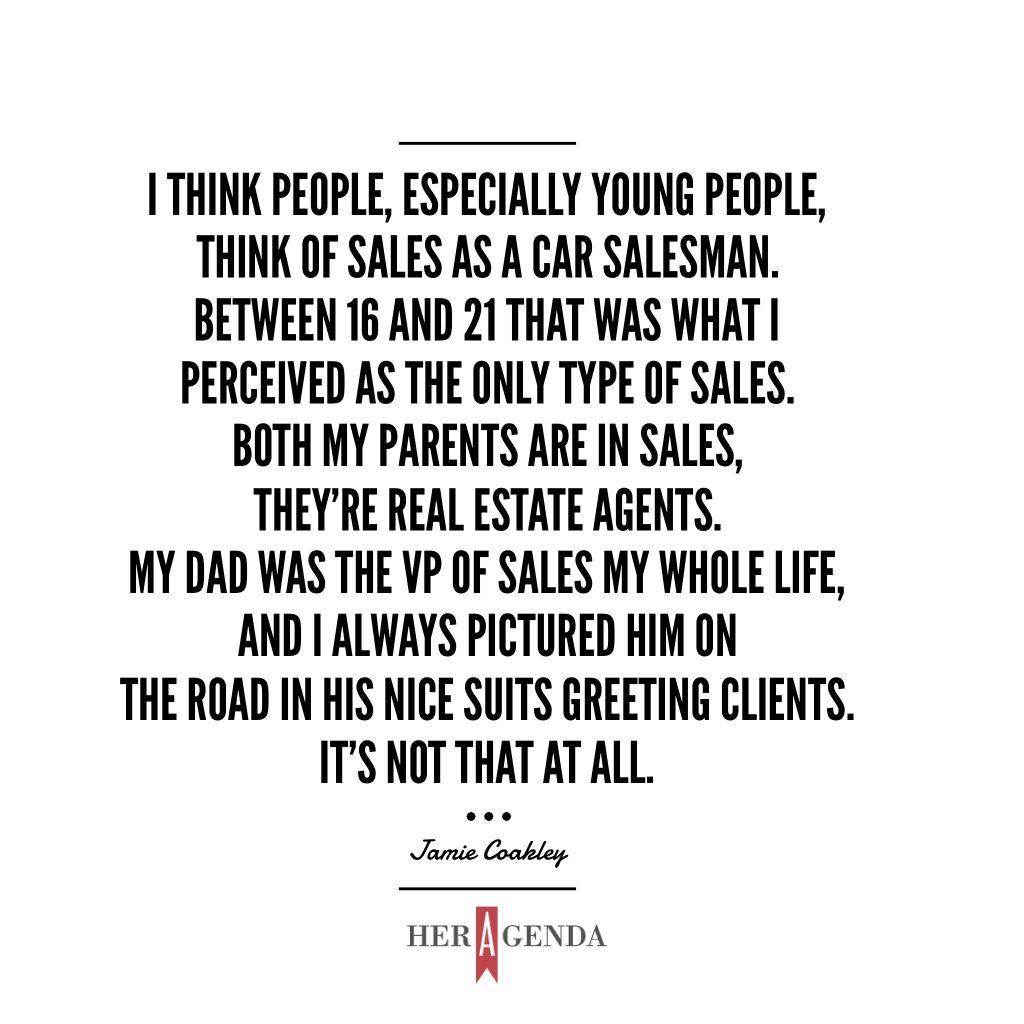
Sales is about listening, building connections and relationships, and asking the tough questions. I tell our clients all the time that you’re not going to like us in the first couple of weeks of engagement because we’re a super high-touch agency. That’s because we want to be in and out in two weeks, and make your life easy after that fact but it requires some heavy lifting. Because of that real relationships are formed and the result on the other end are you have a product you loved or you’re hiring someone you’re excited about. The biggest misconception in sales is that you’re this cheesy, aggressive salesperson. The best salespeople I’ve hired, trained or managed throughout my career are these quiet listeners that hang onto every word and really focused to finding the pain point in every customer’s life and business. Due to that, they’ve become successful.
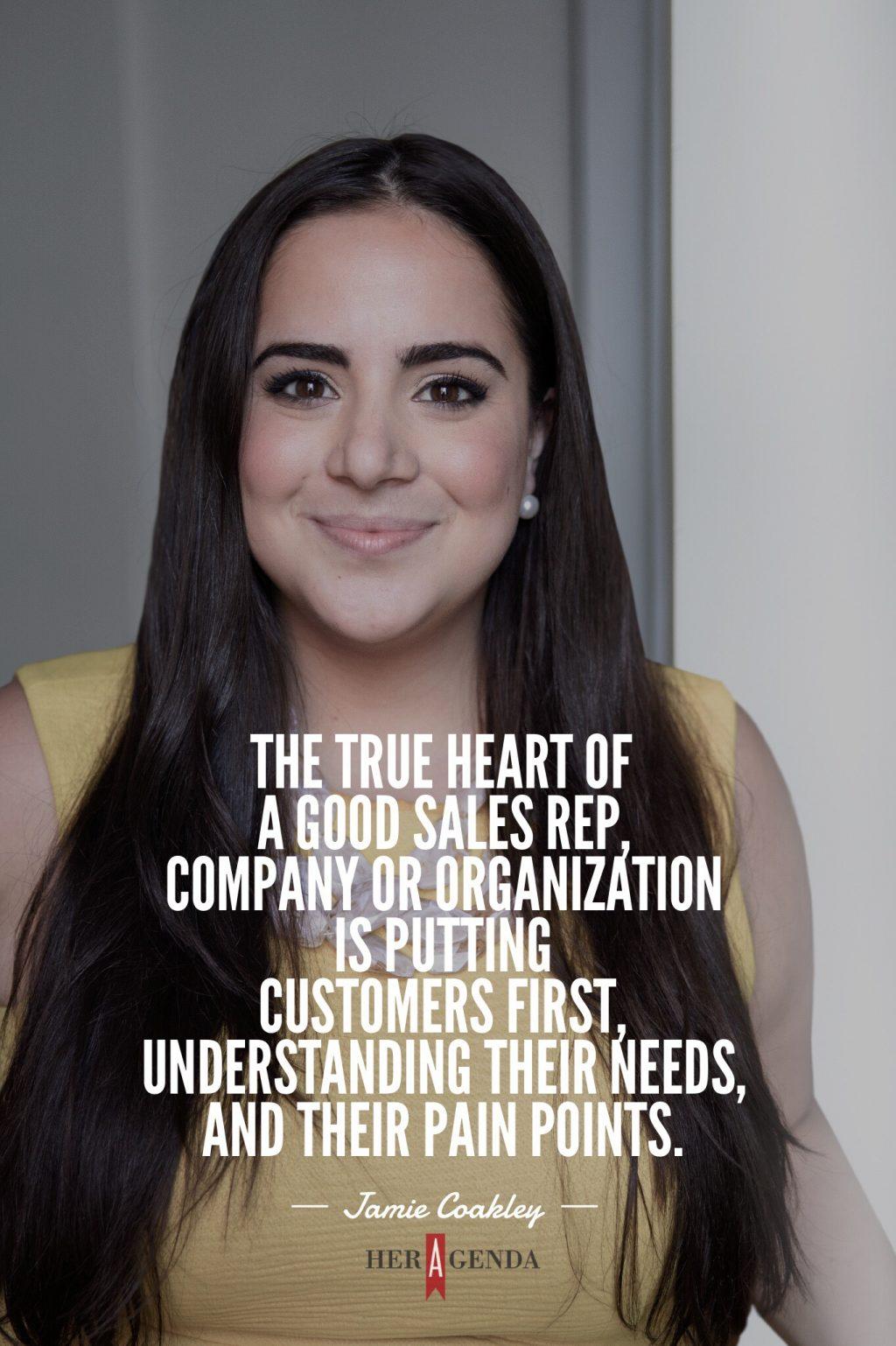
Her Agenda: Your LinkedIn profile reads “Start-up enthusiast with a passion for technology, art and people.” How do you see these subjects intersect through your current leadership?
Jamie Coakley: Studying art and being really passionate about the arts for a really long time, I learned to have a powerful command of language. A lot of times I look at liberal arts majors and think okay, you can read, write, research and can figure things out. I love that. In school I dropped my business major because I felt I was learning how to cut corners. I realized I wanted to learn how to solve problems and my education in the arts has allowed me to think very differently about the landscape of business as well as how my team interacts. I’ve always been the loud leader. I’m outspoken, you can hear me on the floor and the energy drastically shifts when I walk into the room. One of the things I really focused on in my own leadership development was understanding how people work and how people learn. At TwentyPine we’re super focused on how people best learn. Are you a kinesthetic learner? Are you an auditory learner? Are you a visual learner?
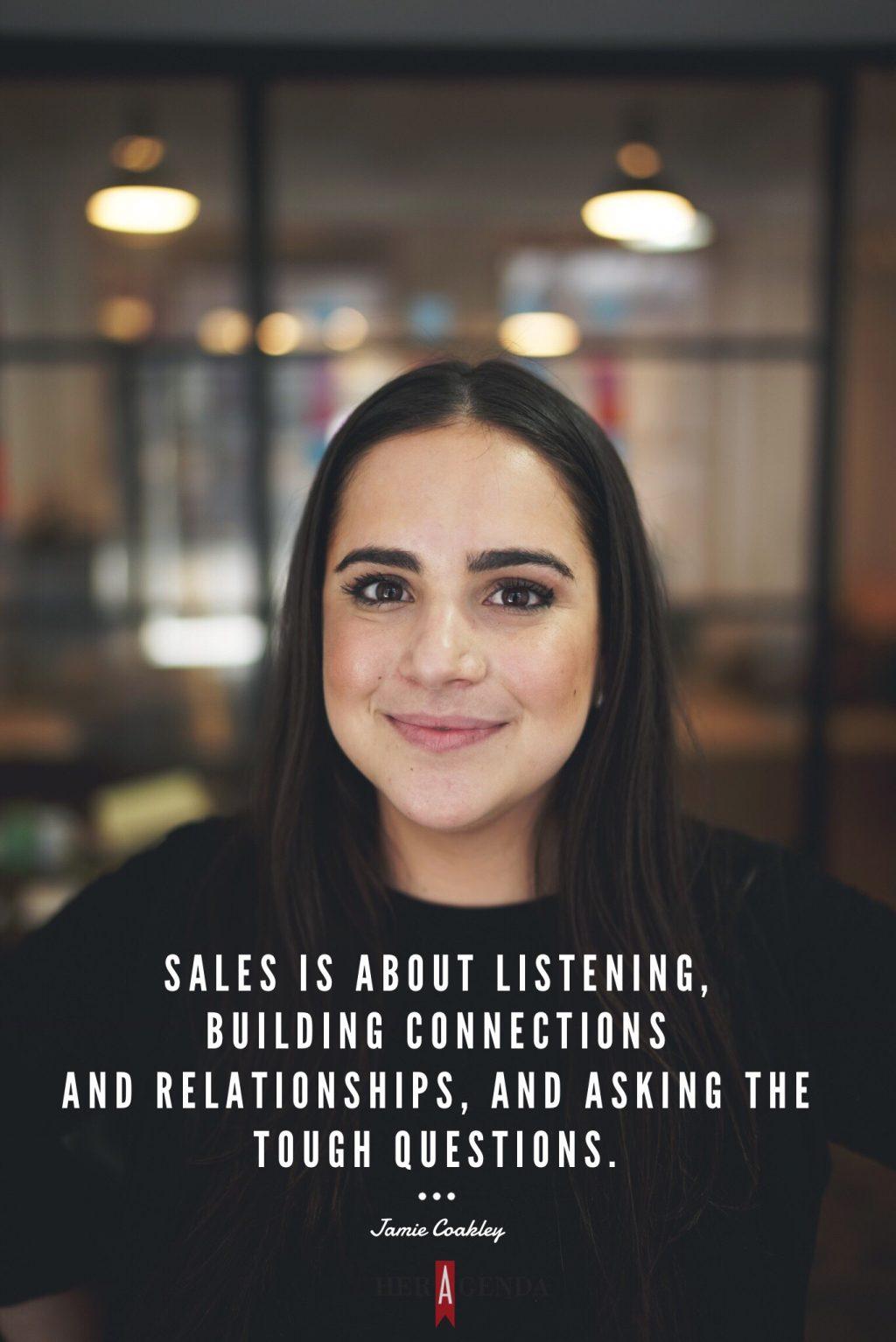
Paying attention to those things [matters] when you’re ramping someone in a fast-paced environment or startup. If you’re super visual I’m going to explain something to you in a totally different way than I’m going to explain to an auditory learner. I’m going to really tell that story and paint the picture so you can really see it in your head because that’s how you learn. As someone who is personally interested in the psychology of an individual and how they grasp new concepts has allowed me to really cater to the different types of individuals we hire and set up every single person for success long-term.
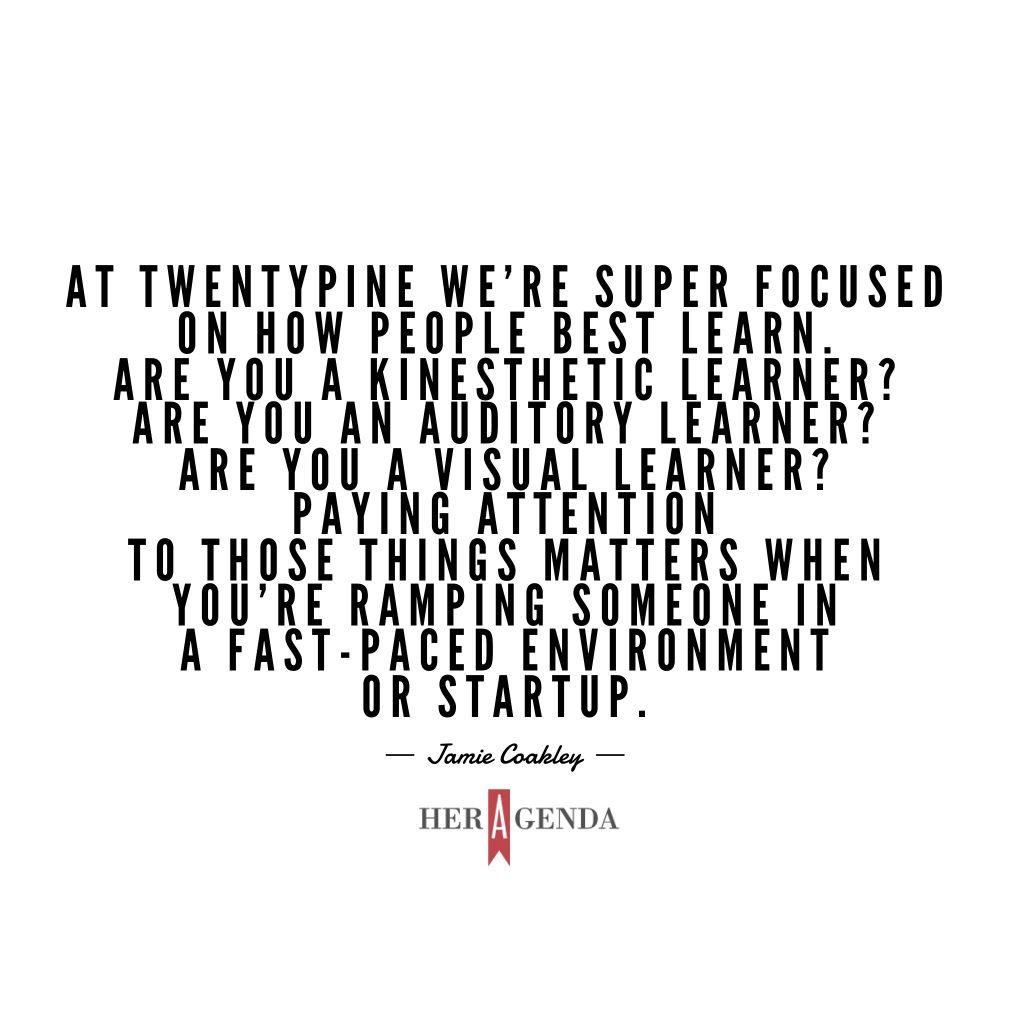
Her Agenda: In your article, “What You Can Do About the Unconscious Bias,” you mention the need to have a growth mindset. What are steps or practices that you use to build and maintain a growth mindset?
Jamie Coakley: In hiring I look for people with that X factor [who] came up through grit. What was that obstacle you came over in your life? How did you overcome it? You have to start with talking about it first. I started with showing my team the TEDTalk by Angela Lee Duckworth. We showed it to our teams and after asked everyone what they thought about it. As a result, my team has started to identify that failures aren’t actually failures they’re opportunities. Having that mindset in a sales role, especially calling from a company that no one knows about and facing that level of rejection time and time again, makes you ask the question what can I do the next time to have a different outcome? Fixed mindset versus growth mindset is a just a different reaction. The more you talk about it, the more people start to have that mindset shift.
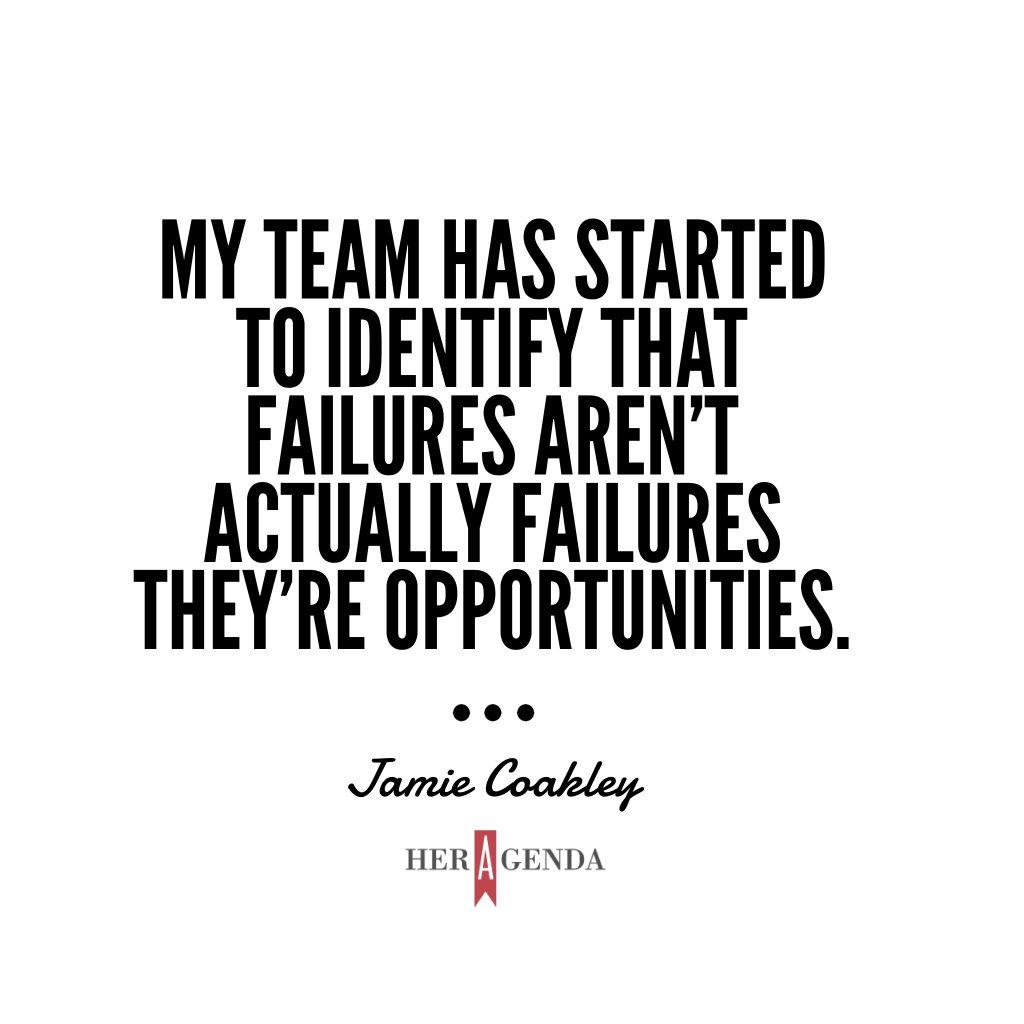
Her Agenda: As someone who advocates for gender equality in industries that are still dominated by men (tech and sales), what has been the impact of the national news and conversation around sexual assault and overall equal treatment in the workplace been on your profession?
Jamie Coakley: We are an extension of hiring teams so we have the ability to impact organizations on such a drastic level. One of the first changes I made when I came on board at TwentyPine is creating a gender field in Salesforce. We classified men and women, as well as other genders that don’t identify with those two. One of the reasons I did that was purely for data on salary. We can’t participate in a conversation and start to solve this problem that we know exists if we don’t have the data to back up the fact that it’s actually happening. We ended up leading a really interesting talk in our Salesforce user group here in New York talking about the differences in salaries and markets. Salesforce is different because Mark Benioff preaches and walks the walk of gender and wage equality putting a ton of money into his company to equalize pay. The checks and balances that company has to make sure that is continued is awesome to watch.
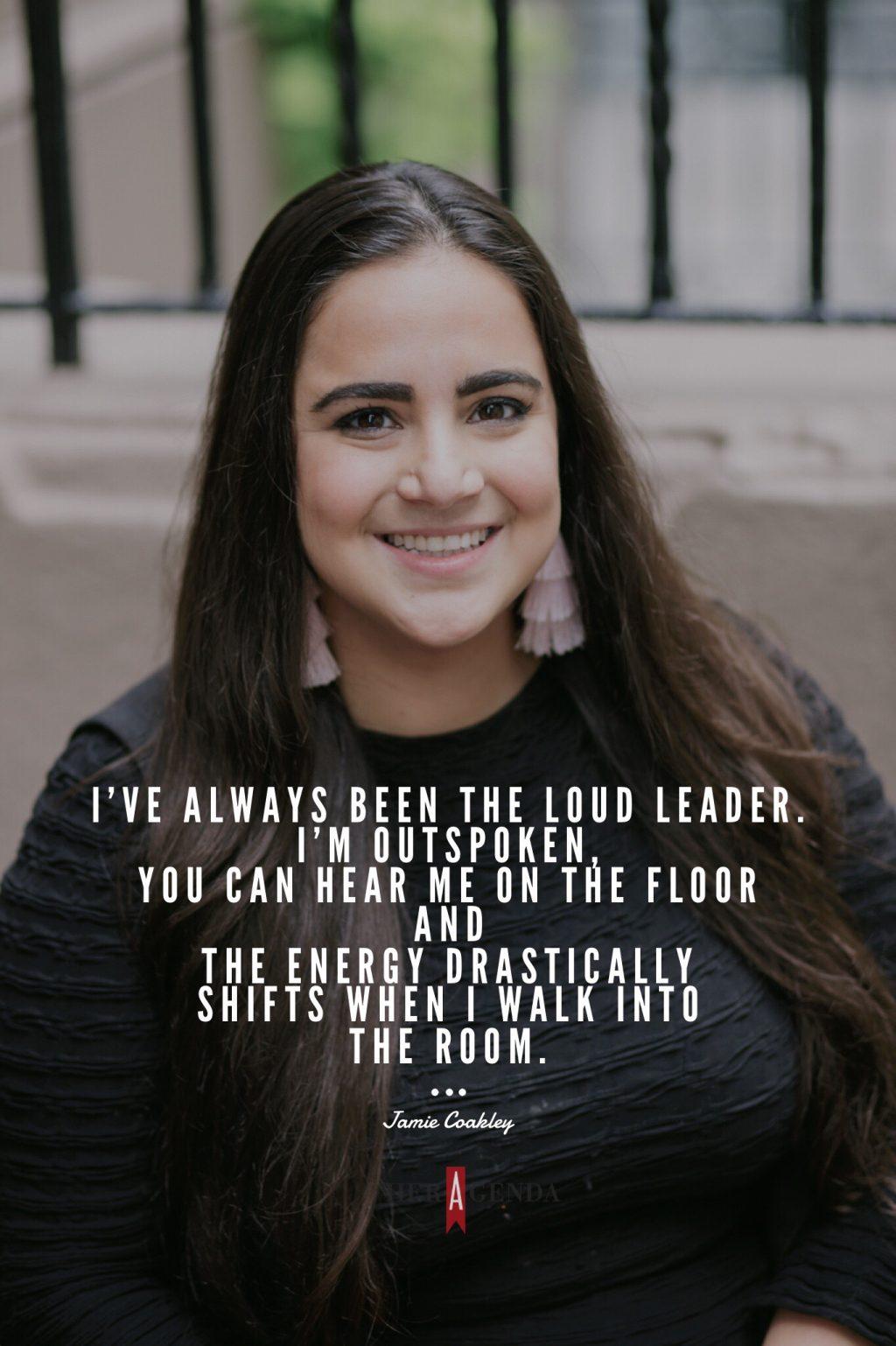
We’re lucky to be part of an ecosystem that is actively involved in that conversation but it still exists. The first thing that companies can do is start participating in the conversation. On the national level with the recent press, the #MeToo movement, and watching Oprah’s speech at the Golden Globes, it’s an awesome time to be apart of that conversation. People shy away from it, it’s scary but it is so real and as a Hispanic woman in a highly male-dominated workforce, I had to claw my way to the top to make equality a thing. One of the things we do internally to address the issue is make sure we have an equal amount of candidates that are male and female. It’s so simple. Let’s create the odds for ourselves.
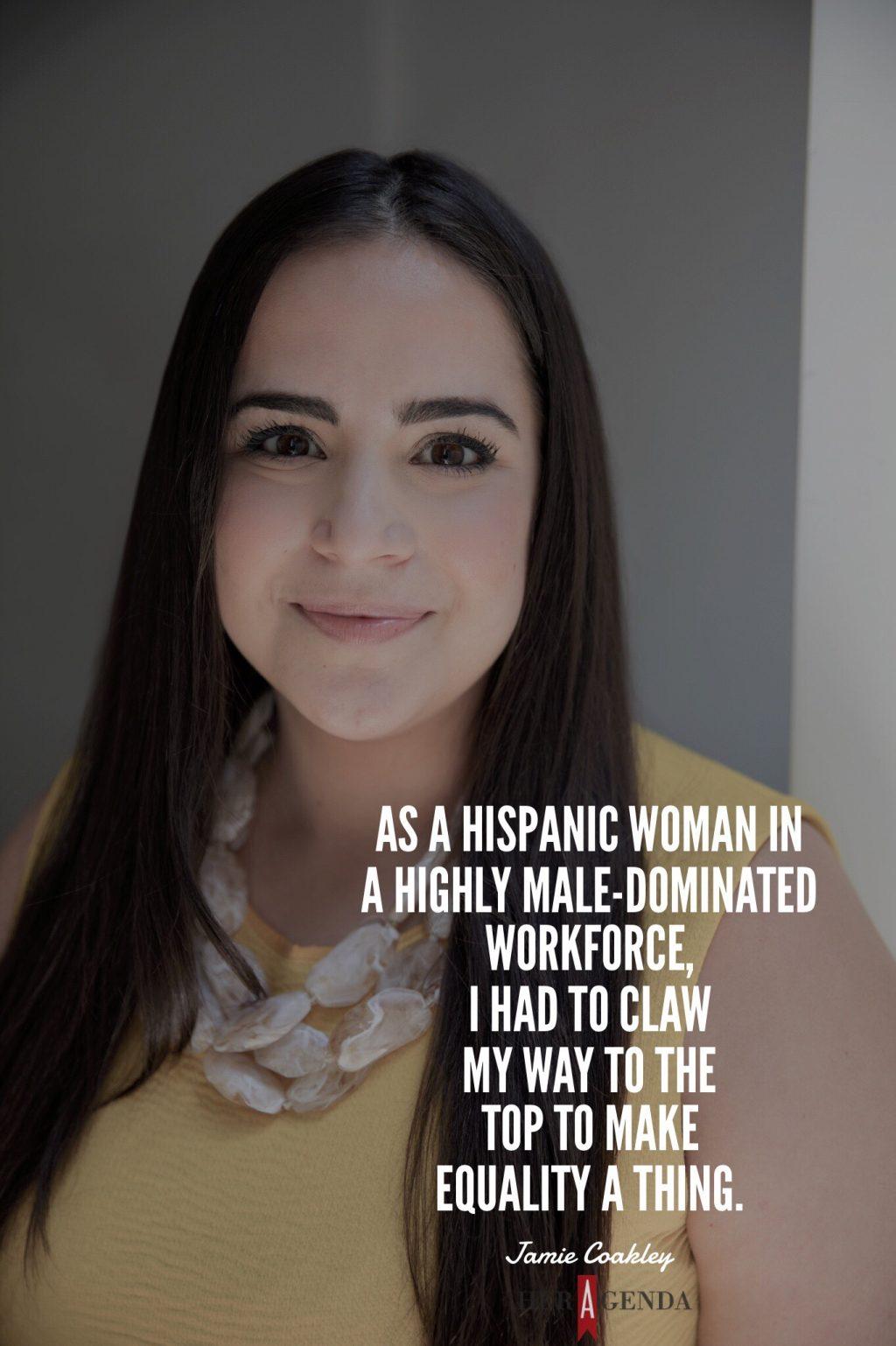
Her Agenda: As the CEO of TwentyPine, what is something you do on a day to day or routine basis that you believe contributes to your success?
Jamie Coakley: I meditate every morning. I grew up meditating, my dad was a hippy man. I had a great mentor a long time ago describe meditation to me as thinking about your mind as a jar of water with rocks and sand. All day long that jar is shaken up and it’s filled with muddy water. That is your mind and the shaking is you walking down 5th Avenue on your way to work as someone bumps into, your phone vibrates, a taxi cab honks and then someone calls. You’re constantly faced with interaction and that muddy mindset is what I’m supposed to operate my business on. That makes no sense. For me, meditation is 10 minutes every morning. It’s like checking the weather. It helps me take that pulse check. As a leader, you can’t control what’s going to come at you that day and there’s always going to be something that’s today’s problem. If you can take 10 minutes in the morning to reset your brain and pay attention to how you body and mind feels that mud, those rocks, that dirt sink to the bottom of that jar and you get this tiny sliver of clear water at the top. That clarity is what you get to operate on for the rest of the day. That clarity is what has kept me sane through so much stuff. It’s a super important practice in my life and I highly recommend it.

Her Agenda: Many studies have shown the positive correlation of diversity and inclusion and an organization’s bottom line and its ability to innovate. Still we see women lacking in leadership, what are some key barriers that prevent companies from doing so? What are some solutions to overcoming the barriers you’ve discussed?
Jamie Coakley: Looking in the mirror and being honest. When you realize your entire sales organization or executive team is [comprised of] men do something about it. It is literally proven by science, studies and research show that if more than 50% of your leadership team is women, you are one of the top grossing revenue companies in the world. Being in business is about making money. Why wouldn’t you do something that is proven to make you money? Outside of the feel good quality and having women in leadership, it’s directly correlated to profit. It’s beyond just the hiring, it’s the mentorship, the development, making sure people feel included at work, ensuring women feel safe, etc. Companies need to start to foster talent in their organization at the lowest levels of the organization.
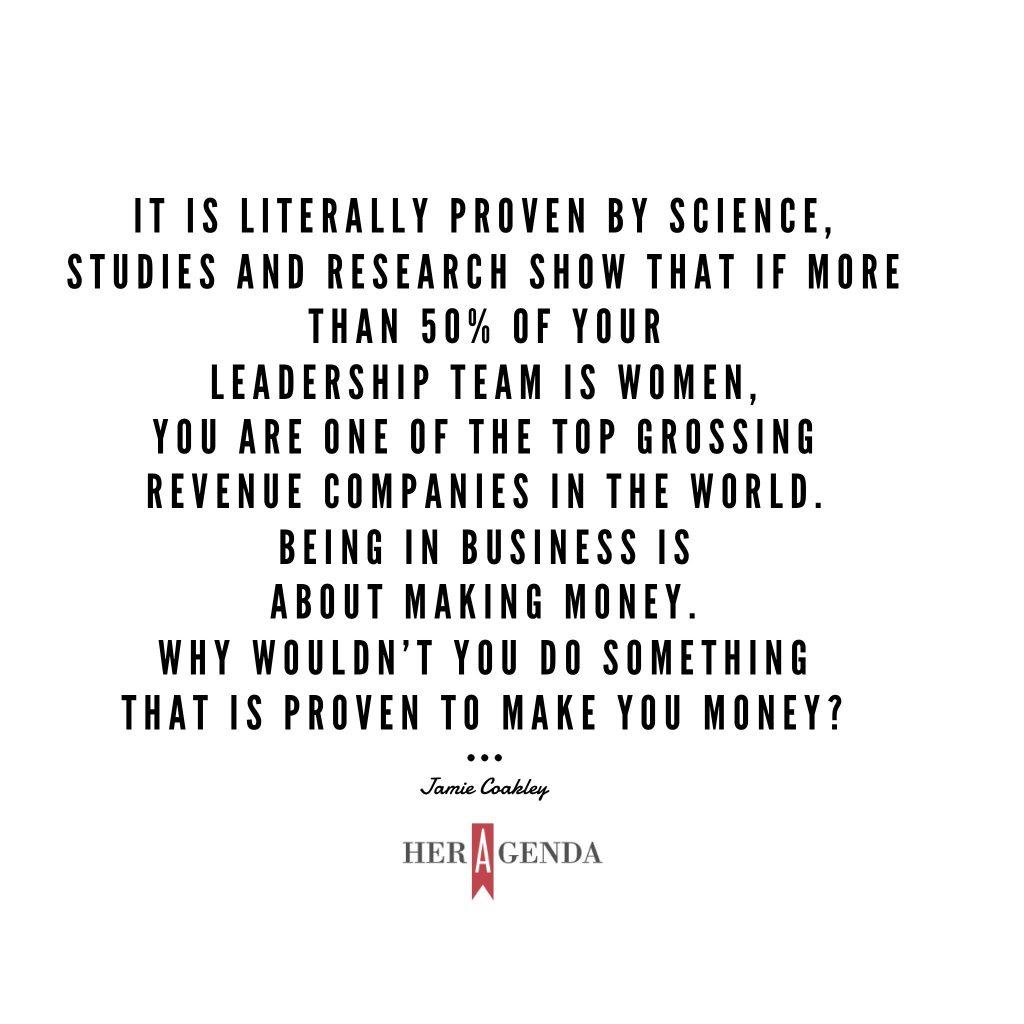
Her Agenda: What recommendations and tips would you give to a millennial women interested in advancing in the tech or sales sectors?
Jamie Coakley: Realize really early on the power in your network. Being really curious and having coffee with a ton of people is my best advice for anyone starting out in their career. Through shared experiences and learning what others have accomplished you figure out what you want and what you’re motivated by. The power in those relationships I don’t take lightly. I met the founder of TwentyPine, Max Maedar through a mutual connection. You never know where those conversations are going to take you. Harnessing the power of your network can be one of the most powerful things you can do for your career.
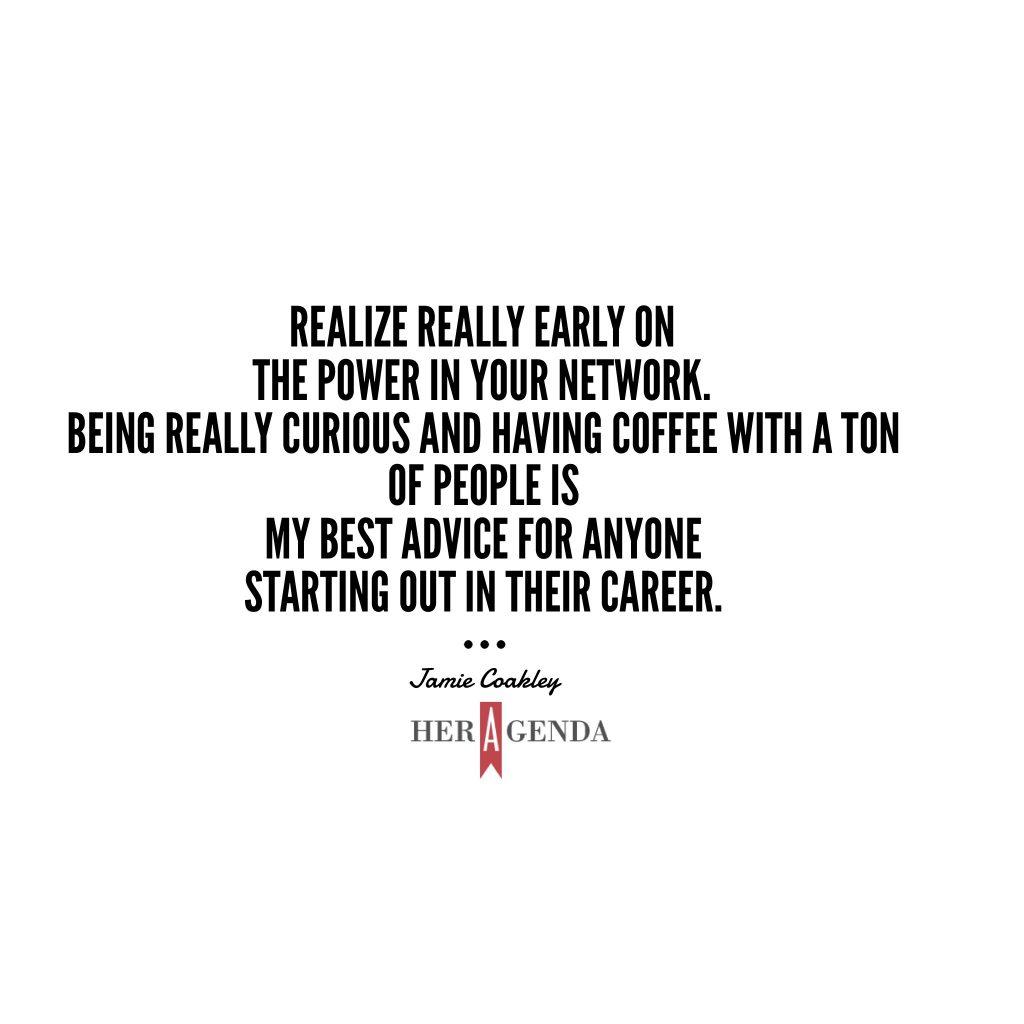
Her Agenda: How do you balance the demands of your personal and professional life?
Jamie Coakley: I am an avid scheduler. My really good friends know now to put something in a calendar invite, which is so sad but if it’s not there it doesn’t exist to me and I forget. My dear friends will shoot me calendar invites. Plan ahead and carve out time. The more senior you become, no matter what industry you’re in, the less time you’re going to have for yourself. Plan and plan ahead. Be okay with saying no. First, you have to ask yourself, can I do this? Second, should I do this? I also love what I do. I love what we do at TwentyPine and I love managing people. It makes me super busy but I go on vacations, I unplug and I get rid of my phone. It’s just all about balance. Be okay with pushing yourself in one direction as long as you have a safety net on the other side.
Her Agenda: TwentyPine’s clients vary from startups finalizing initial rounds of funding to Fortune 500 companies, are there any best practices for good recruitment that transcend the size or age of a company?
Jamie Coakley: Treat candidates great! Every interaction a candidate has with an organization is so important. From the way they apply to your job to the experience they have receiving confirmation of their application. Companies that are diligent about the experience they provide to candidates at every stage of the interview and recruitment process are the companies you hear about and the companies everyone wants to work for. Don’t cut corners. If someone gets passed on, pick up the phone as the manager, and tell someone they’re not being hired and tell them why. It is such a powerful phone call. Unfortunately with recruitment there’s a lot of ways to cut corners. Your brand is not just the people who work for your company.
Her Agenda: Who are your mentors and how have they influenced where you are in your career today?
Jamie Coakley: First and foremost, my mentors are my parents. When my sister and I were four and five, my dad would teach us how to negotiate. From a very early age I was learning sales, negotiation tactics and how to be confident. I watched my mom have this badass career in real estate after having me. I’ve always looked up to them. I’ve also been super fortunate my entire career to have amazing bosses. Alan Ramsey, my first manager at Yelp, taught me everything I know about sales: how to follow up, how to face rejection, how to pick up the phone. He made me realize sales can be really fun especially in a mundane role. Carolyn Betts, I worked with her for four years at Betts Recruiting. Working for a female CEO, if you’ve never done it, go find that opportunity for you. It is so empowering. There is no glass ceiling. The amount of freedom and power I was given at 24 to run a division, New York office and region, I can’t replace it. She really and truly feels that the success of that company is not just her own but the combined success of the people who worked for her. Working for someone like that has been truly inspirational.
Her Agenda: How does TwentyPine help companies maximize their use of Salesforce?
Jamie Coakley: Salesforce is a super expensive tool so when a company has decided to buy Salesforce they are seriously investing in their business. What we do at TwentyPine is help scale sustainable teams. Whether you’re a customer that’s bought Salesforce and hasn’t implemented it yet or you’re a Fortune 500 company, we help staff those teams that can help companies realize their full potential on the platform.
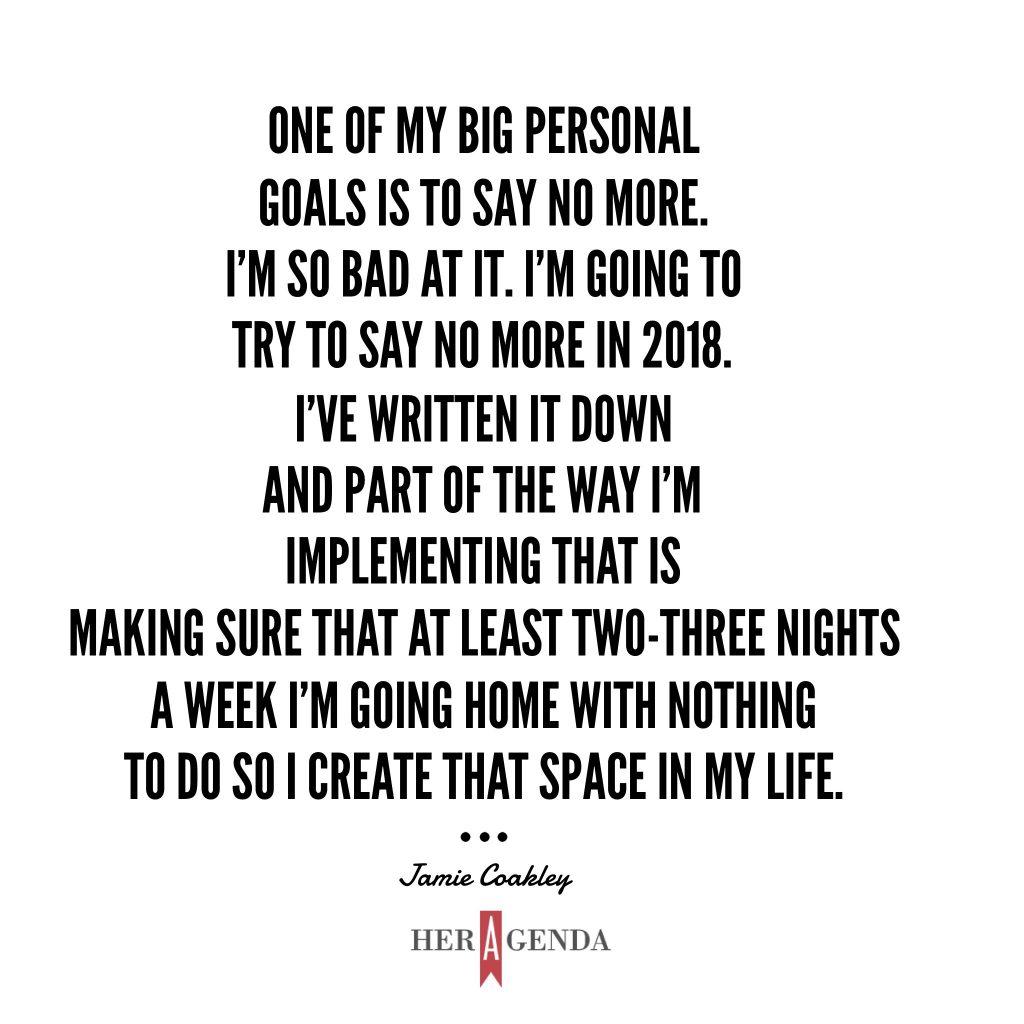
Her Agenda: What’s one goal you’re looking forward to accomplishing this year?
Jamie Coakley: One of my big personal goals is to say no more. I’m so bad at it. I’m going to try to say no more in 2018. I’ve written it down and part of the way I’m implementing that is making sure that at least two-three nights a week I’m going home with nothing to do so I create that space in my life. Burnout is real and no one is successful at that point.
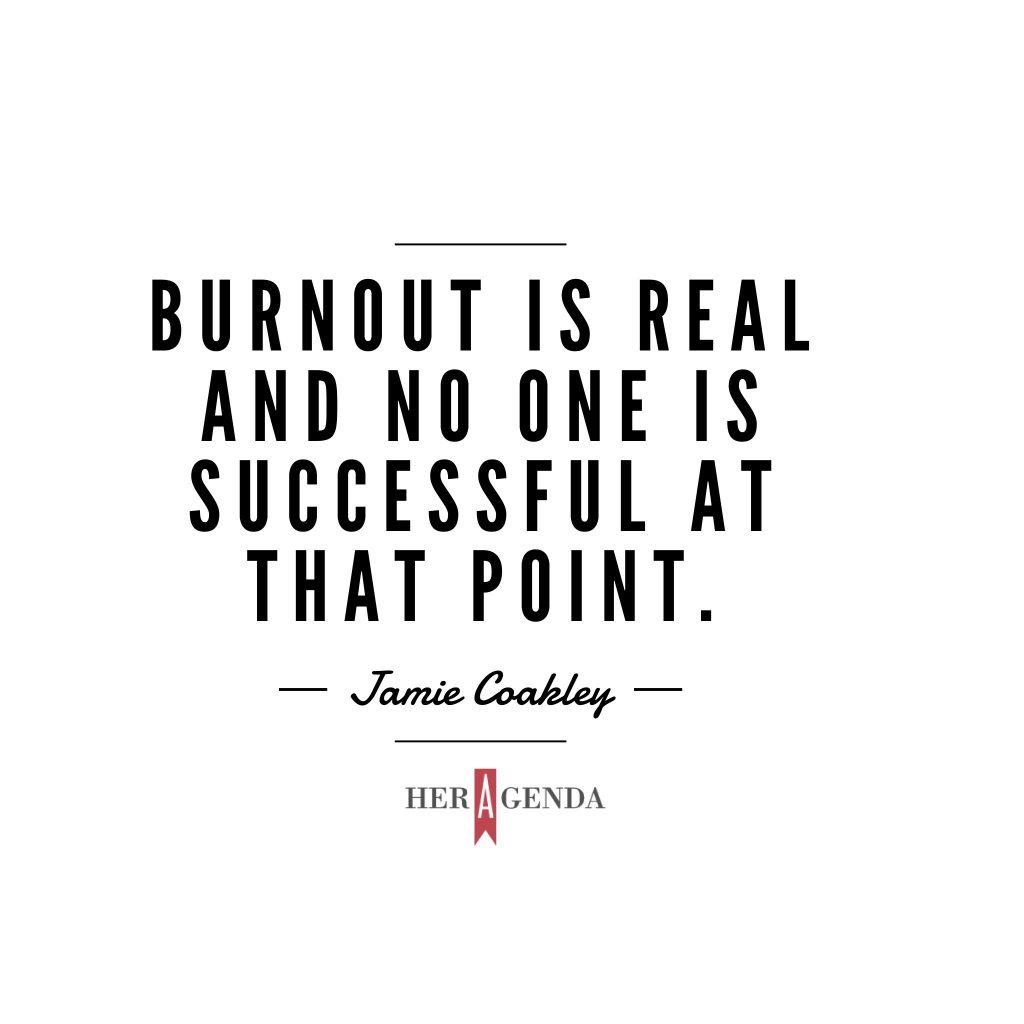
[Editor’s note: This interview was published on April 2nd, 2018. It has been edited for length and clarity.]

